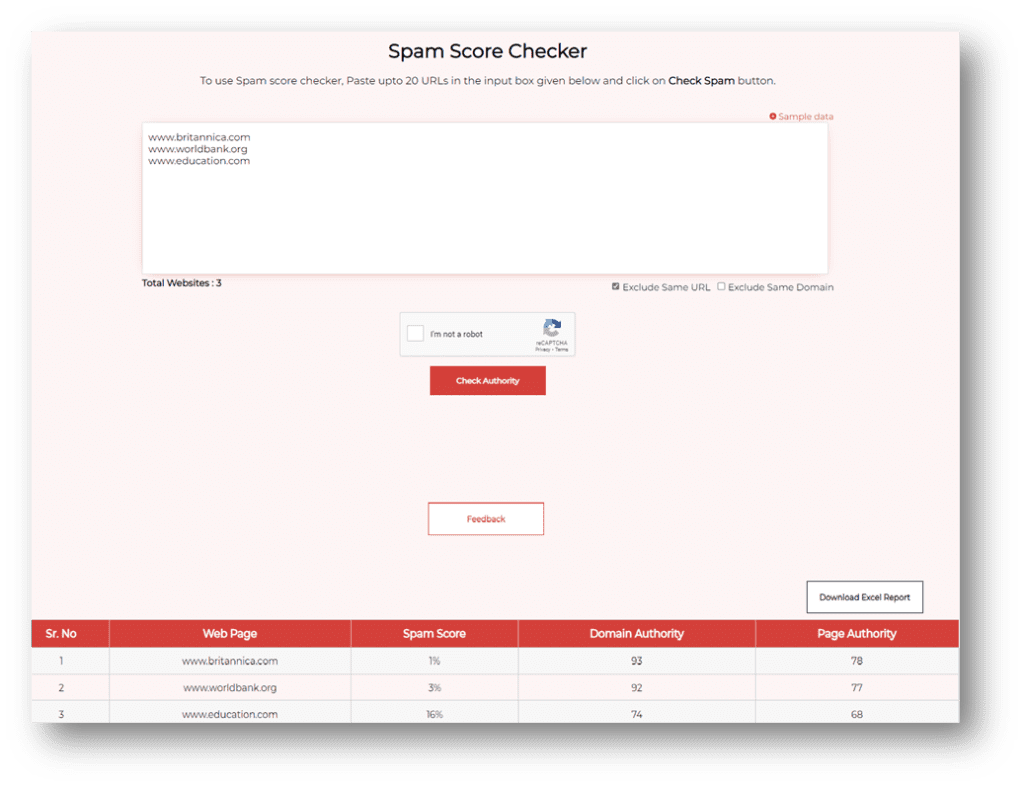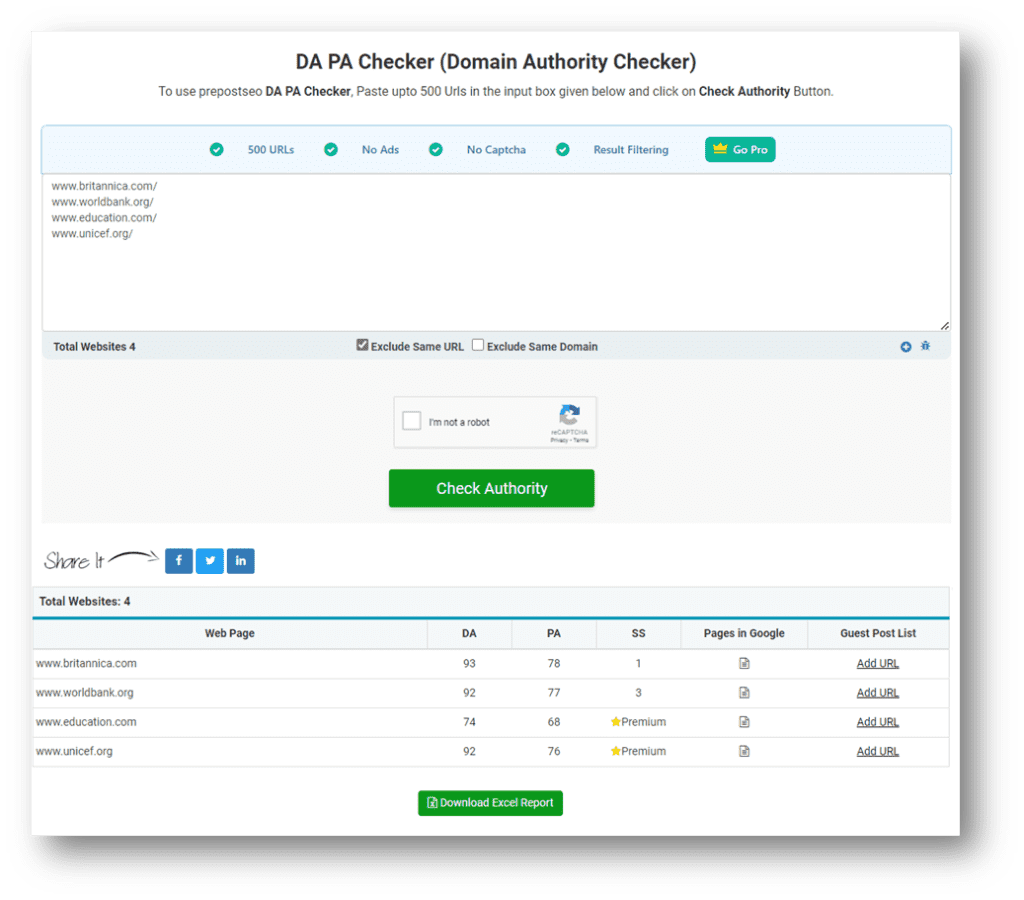Domain authority, or DA for short, is a ranking score developed by Moz. The domain authority gives you a good idea about the SERPs (Search Engine Results Pages) ranking of your website.
There is an important distinction that you need to know here. DA is a score developed by Moz, but it is not used or made by search engines. Having a high DA can only give you an idea of how high your site may rank on the search engines.
The DA of a website can range from 0 to 100, where the higher, the better. A webmaster should always strive to improve their DA and not get complacent. The higher the score is, the better the chances of ranking high as well.
History of Domain Authority
In a typical search engine, the rank of a website is dependent on a lot of factors. A long time ago, the ranking metric known as Page Rank was publicly displayed. Since all other metrics were invisible, most webmasters started trying to optimize their sites for page rank.
This was against Google’s goals as they didn’t want everyone to be just optimizing for one metric. So, the shift towards hiding the updates to Google’s search algorithm being hidden started. Essentially, this meant that the page rank would no longer be publicly listed, but it would still be used.
At this point, Moz decided they needed a metric that people could strive to improve and see their results. So, they devised a new ranking metric called Domain Authority.
They tried to guess how Google ranks its pages and tried to create their own version of their algorithm.
Nowadays, Domain Authority is considered a great yardstick for measuring the success of your SEO strategy.
What Factors Affect DA?
Several factors affect DA. These factors are basically what the algorithm takes into account when calculating the score. The most important factors are listed below:
- Your website’s SEO
- The quality of your published content
- The quantity of all incoming links
- The quality of the incoming links
- The relevancy of the incoming links
The “SEO” includes your technical SEO and on-page SEO. The quality of the content is measured by a variety of factors, such as its uniqueness and readability. The quality of the incoming links is measured by checking the DA of the website that is linking to yours. Relevancy is measured by checking if the topics are related or not.
The site quality that is sending the links is also measured by another thing called spam score. This is also a metric developed by Moz, and it checks if a website is considered spammy or trustworthy.
Spam score ranges from 0 to 17, where 17 is the least trustworthy, i.e., a lower spam score is better. Following Moz, multiple brands have made their own tools that can calculate spam scores and domain authority.
A spam score checker calculates the spam score of a website. If a site has a lower score, then it means it is not using black hat tactics or has features that can be penalized.
Moz has its own spam score checker with which it can measure the spam score of a site when measuring its domain authority.

How Can You Improve Your Domain authority?
The main idea behind improving domain authority is working on your SEO. Basically, anything you do to improve your SEO will also improve your DA.
So, what are the things you can work on? You need to work on your on-page SEO and technical SEO.
To improve the on-page SEO, you need to write optimized content that targets the correct keywords. It also involves avoiding plagiarism and making sure there is no keyword stuffing. On-page SEO also involves making a great UI so that your visitors have a great experience and have no trouble navigating the site.
Technical SEO is related to all the code side of your site. To improve it, various sorts of optimizations and additions of tags, headers, and the URL.
Off-page SEO can be improved by collaborating with high-authority websites to get backlinks. This can be done in several ways. One method is to write such great content that people have no choice but to link to it.
You can actually use any White-hat link-building method that works for you. All you need to do is to make sure that you only get links from high DA sites.
How to Calculate Your Domain Authority
So, how can you calculate your own domain authority? Well, you can use just about any reliable domain authority checker available on the internet. However, the issue with some of them is that they don’t give out results for more than one website.
Let’s suppose you wanted to check the DA of multiple sites at once for comparison. What would you do then? Well, that is also quite easy because there is a tool known as a bulk DA checker available online.
Most free bulk DA checkers can check up to 10 URLs at once. Anyhow, with the help of such tools, you can measure the DA of any website on the internet.

Does Domain Authority Affect Your Website Ranking?
Well, the short answer is “No.”Domain authority is a ranking score developed by Moz. Moz is not a search engine.
Search engines such as Google and Yahoo! do not utilize domain authority as a ranking metric. As such, your Domain Authority does not affect your website ranking.
There are actually websites out there that have a really good domain authority score, but their SERP ranking is not good. That’s because, in the end, DA is just Moz’s educated guess at what Google uses to rank sites on their engine.
Since Google does not disclose what factors and metrics they use, DA can only ever be a guess of a site’s SERP ranking.
Conclusion
In this article, we checked out what domain authority is, who developed it, and what it can be used for. We also looked at how to measure it with the help of tools and how it can provide insights into the strengths and weaknesses of your SEO strategy.
Finally, we saw that DA does not affect the SERP ranking in any way, as it is not utilized by search engines.









